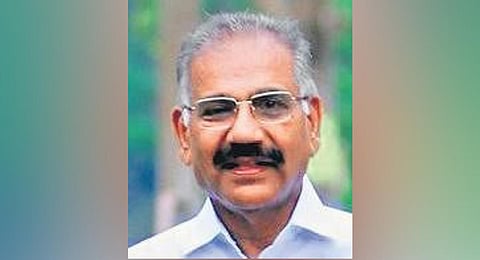

THIRUVANANTHAPURAM: A comprehensive study carried out by the Forest Department on human-wildlife conflict in the state has identified around 273 local bodies as critical zones. Among them 30 local bodies have been flagged as major hotspots and nine out of which have been identified as highly critical.
Forest Minister AK Saseendran, at a press conference here on Thursday, said that the state government is preparing a comprehensive master plan to mitigate the growing human-wildlife conflict in the state.
The study was conducted based on the human-wildlife conflicts that happened in the past 10 years. In the past ten years, as many as 840 people have lost their lives in wildlife attacks in the state. This year so far around 39 people have lost their lives.
He said that a master plan with specific mitigation measures for respective hotspots will be drawn up to address the crisis.
On the occasion he launched the online portal of ‘Safe Habitat Hack’ - a hackathon being organised by the department in collaboration with K-Disc to generate innovative ideas to mitigate the human-wildlife conflict.
Through the initiative, the department aims to invite the participation of start ups, agencies working in the field, researchers and other experts and come up with strategies for the master plan.
To address the crisis, the state has been divided into 12 landscapes based on conflict-prone regions. This will aid in devising landscape-level master plans and consolidate them into a state-level action plan. Landscape-level master plans will be consolidated into a state-level action plan.
The hackathon aims to address inefficiencies in solar fencing and barriers, the lack of advanced real-time monitoring devices, and practical challenges in implementing these technologies in forested areas. It will also emphasise solutions for habitat degradation and creating region-specific mitigation strategies.
Participants can submit ideas and concepts until December 20. Shortlisted ideas will be featured at an event to be held on February 15, 2025 in Thiruvananthapuram.
Mission Fencing 2024
One of the key projects that will be taken up under the master plan is Mission Fencing 2024, which aims at repairing and upgrading 1400 km of existing solar fences across the state. The department will launch a month-long campaign to assess the present condition of these fences and raise funds to repair them.
The project will be implemented in three phases - identification of damaged part of fences (Nov 25- 30), carrying out of repairing works with public and NGO participation (December 1-15), fixing the solar fences (Dec 16-24)
Unavailability of anti-venom reason for rise in snake bite deaths, says Forest Minister
Minister A K Saseendran said that unavailability of anti-venom is a major cause of rise in snake-bite deaths. He said that the department has initiated steps to eliminate snake bite-related deaths in the state within the next five years. The initial goal is to bring down the fatality rate by 50 percent in the first two years.
As part of the project, training programme wil be launched in January in collaboration with Kerala State Disaster Management Authority (KSDMA), Revenue Department, Local self government department, Education Department.
The Minister said that one of the key steps being taken to ensure the availability of anti-venom at all family health centres in the state within a year.
Human-wildlife conflict prone local bodies in the state
Local bodies in highly critical category: Mananthavady, Sulthan Bathery, Aralam, Kuttampuzha, Noolpuzha, Panamaram, Thavinhal, Thirunelly and Thondernad.
Other critical hotspots prone to human-wildlife conflict include: Agaly, Ariencavu, Ayyampuzha, Chinnakanal, Kanthalloor, Kelakam, Kodassery, Koovappady, Kottappady, Kottiyoor, Kulathupuzha, Meenangadi, Mullamkolly, Payyavoor, Peringamala, Pindimana, Poothadi, Pulpally, Sholayar, Vellamunda and Vengoor.